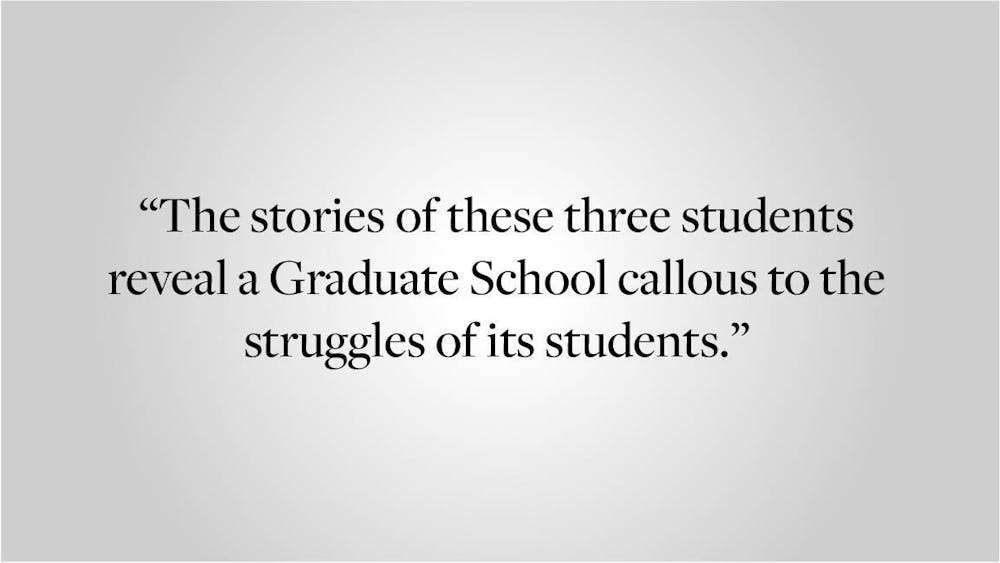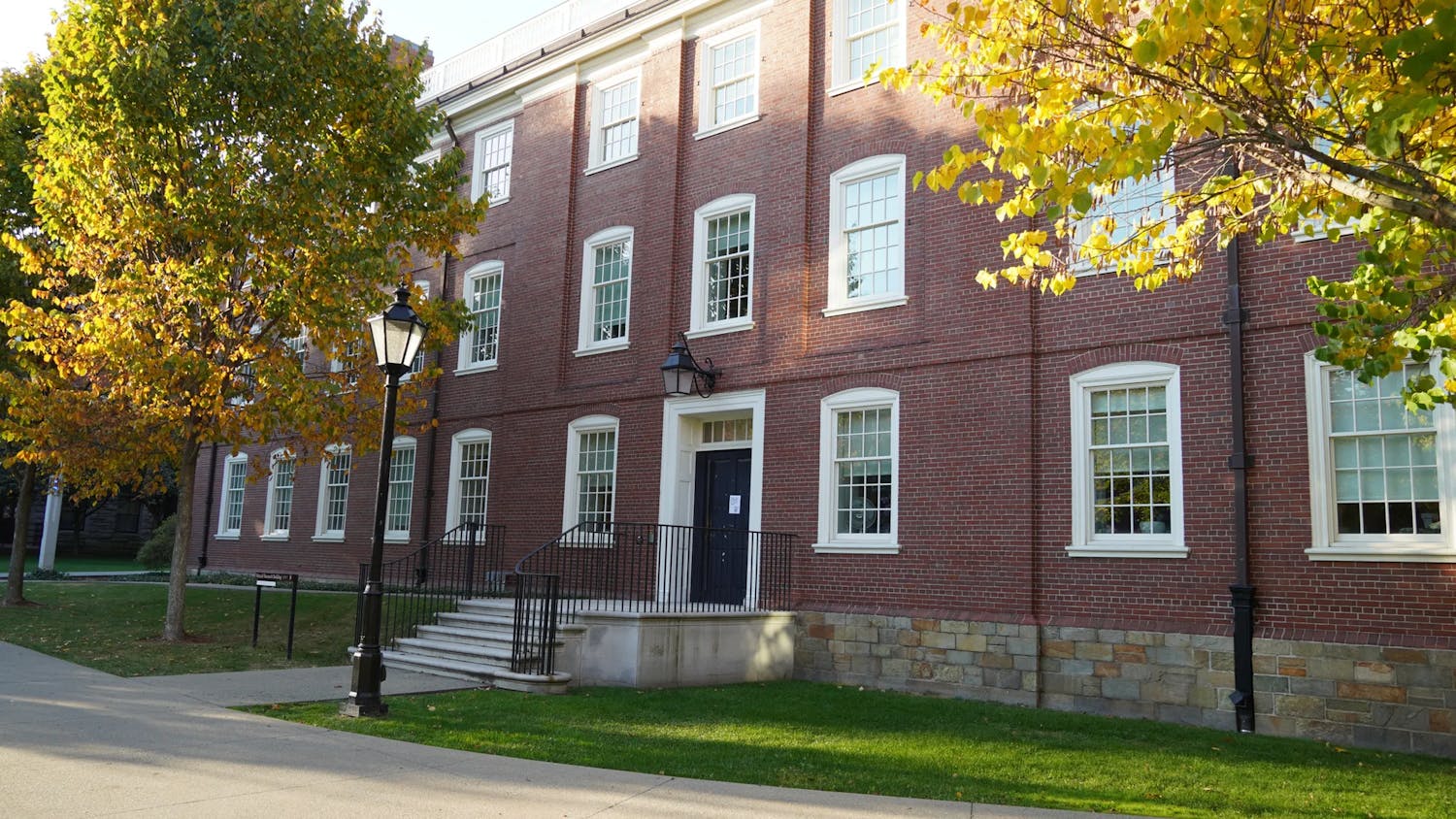According to its website, the Brown University Graduate School “is committed to fostering a welcoming and inclusive academic community.” But this fall, as three graduate students ― Jeremiah Zablon GS, Clew GS, and Karina Santamaria GS ― faced removal from their programs, that commitment to inclusion was nowhere to be seen.
Instead, the stories of these three students reveal a Graduate School callous to the struggles of its students.
Due to economic hardship in his home country Kenya, Zablon could no longer afford the tuition for his master’s program. According to a GoFundMe page Zablon created for tuition assistance, all of his loan applications, including one to the University itself, were denied. Fortunately, Zablon was able to scrape together the necessary funds to enroll in classes and avoid losing his student visa.
The fact that Zablon was forced to turn to GoFundMe at all is concerning. Crowdfunding is no replacement for institutional support. Zablon told The Herald, “It took me five years to save what I used (for tuition) in the past semester.” He clearly values a Brown education ― but does the institution value him back? When he needed help, the University’s support systems were insufficient.
Clew and Santamaria continue to face removal from their programs.
Earlier this year, Clew found out that their sister was diagnosed with cancer and applied for family leave to care for her. But their application was denied. University administrators cited the Graduate School’s family leave policy, which allows students to take leave to care for a “spouse, domestic partner, child or parent” — but not a sibling. This policy is clearly flawed, arbitrarily designating certain relationships as worthy of care but not others. The University should update its leave policy, and in the meantime, grant Clew the leave they require. Clew should not be forced to give up their education for their family, or give up their family for their education.
Battling an array of personal stressors in 2019, Santamaria missed a deadline for her dissertation revisions by three days. She was terminated from her program, and though she was reinstated after an appeal, the Graduate School never gave her a real second chance. Santamaria lost funding for her research, impeding crucial data collection. After her program abruptly revoked a teaching assistant position it had offered her, she was forced to find outside work as a rideshare driver and grant writer in order to support her research and living costs. The University set her up for failure.
True inclusion requires flexibility and empathy. As Santamaria herself stated, “I came here as a low-income, first-generation, 45-year-old student. … There’s a lot of recruitment of diversity, … but there’s not enough of a plan to deal with what comes with that diversity. The answer cannot just be, ‘Get out.’”
The Graduate School’s treatment of Zablon, Clew and Santamaria is a troubling indication of the University’s broader lack of support for graduate students. Over the years, graduate student complaints ― ranging from funding to housing to childcare ― have been varied and far-reaching, and are in many ways, still unanswered.
The University has not released a statement explaining each student’s case, in accordance with federal law prohibiting disclosures about students’ academic or financial circumstances.
We are not asking for comment; we are asking for action. We are asking the University to let Clew and Santamaria stay. We are asking the University to improve support for graduate students. They deserve better.
Editorials are written by The Herald’s Editorial Page Board. This editorial was written by its editor Johnny Ren ’23 and members Irene Chou ’23, Caroline Nash ’22.5, Augustus Bayard ’24, Devan Paul ’24 and Kate Waisel ’24.





